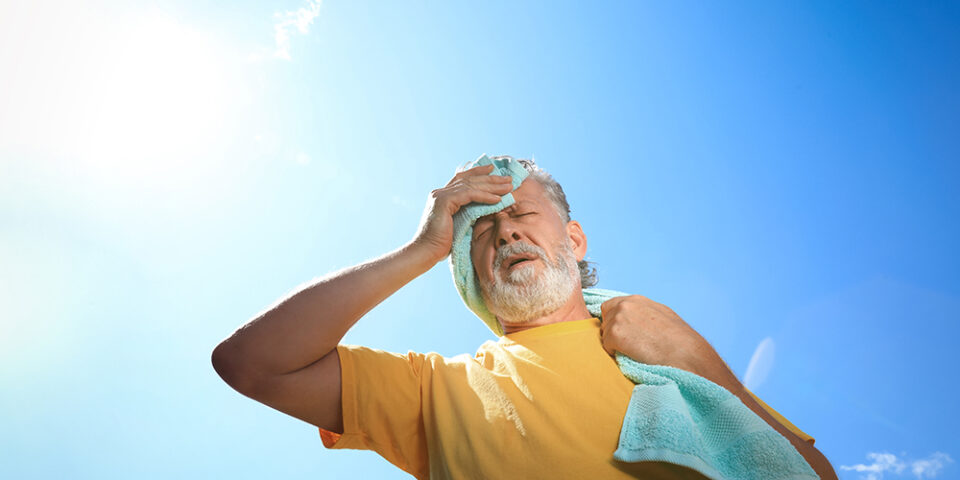Do diabetes and heart disease make you more sensitive to heat?
Hot summer days can be dangerous for anyone, but if you have diabetes or heart disease, you may be even more prone to the effects of overheating during warmer temperatures. Jeremy Byrd, MD, explained why diabetes or heart disease can make you more sensitive to heat in the summer, and what you can do to protect yourself.
Why does summer heat affect you differently if you have a chronic condition?
Having diabetes or heart disease reduces your body’s resilience, or ability to bounce back after experiencing physical stress from your environment or events around you.
“With diabetes, you may be more likely to have higher blood sugar levels because as you get more dehydrated, the blood sugar rises, which causes you to urinate more,” Dr. Byrd explained. “We see this a lot in our patients as a sign of diabetes, and it’s kind of a vicious cycle. So, it’s important to stay well hydrated and avoid extreme heat if you can.”
The same is true for heart disease. “If someone struggles with high blood pressure and they become dehydrated, their blood pressure can drop too much, especially if they’ve taken their medicines like they’re supposed to,” Dr. Byrd said.
The heat can affect your medications, too.If you take insulin, hot weather can reduce its effectiveness. If you take heart medication, you need to be extra careful about dehydration because some types of heart medicine make you urinate more.
What can you do to protect yourself from the heat if you have diabetes or heart disease?
The most important ways you can protect yourself are by staying hydrated, wearing the appropriate clothing and avoiding going outside during the hottest part of the day.
“For diabetes in particular, more frequent monitoring of the blood sugar would be good,” Dr. Byrd said. “When monitoring blood sugar, it’s important to know if your supplies are actually working like they’re supposed to because the heat can inactivate them.”
The Centers for Disease Control and Prevention also offers these tips for protecting your diabetes medicines, supplies and equipment:
- Avoid storing insulin or oral diabetes medicine in direct sunlight or in a hot car. Check package information about how high temperatures can affect insulin and other medicines.
- If you’re traveling, keep insulin and other medicines in a cooler. Don’t put insulin directly on ice or on a gel pack.
- Heat can damage your blood sugar monitor, insulin pump and other diabetes equipment. Don’t leave them in a hot car, by a pool, in direct sunlight, or on the beach. The same goes for supplies such as test strips.
Are children with diabetes more sensitive to the heat?
Children with diabetes have even less resilience to the heat than adults.
“Because children are smaller, their temperatures can rise faster than adults, and so you just have to be really careful,” Dr. Byrd said. “I would recommend checking their sugar levels a little more frequently and trying to avoid that extreme heat. Children just don’t have the same capacity to handle those extreme temperatures as an adult may be able to.”
Find a cardiologist you trust
We make it easier to get the care your heart needs, with cardiologists located near you.
Learn More

